Parasites like fleas and worms can cause significant discomfort and health problems for your canine companion. Protecting your dog from these pests is crucial for their well-being, but the cost of treatment can be a concern for many pet owners. Fortunately, there are effective and Cheap Flea And Worm Treatment For Dogs available to keep your furry friend healthy without breaking the bank.
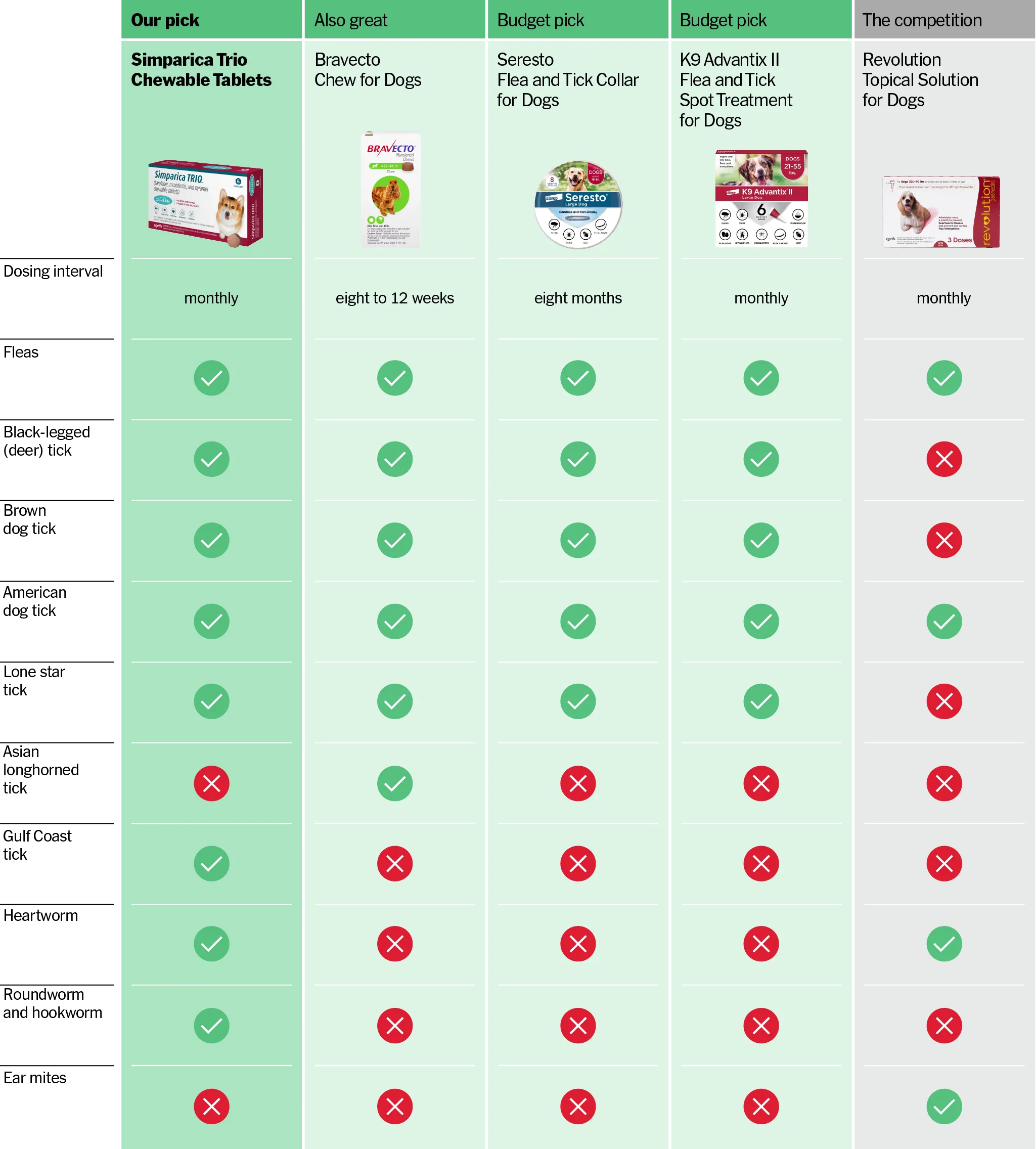 A chart comparing our treatment picks for dogs and the pests they help fight.
A chart comparing our treatment picks for dogs and the pests they help fight.
This article will explore some of the most affordable and reliable options for flea and worm control, including all-in-one solutions, longer-lasting treatments, and budget-friendly alternatives.
All-in-One Flea, Tick, and Worm Treatment: Simparica Trio
For comprehensive protection at a reasonable price, Simparica Trio Chewable Tablets for Dogs offer a broad spectrum of defense against parasites. This monthly, prescription-only chewable tablet treats and controls fleas, hookworms, roundworms, and five kinds of ticks, while also preventing heartworm disease.
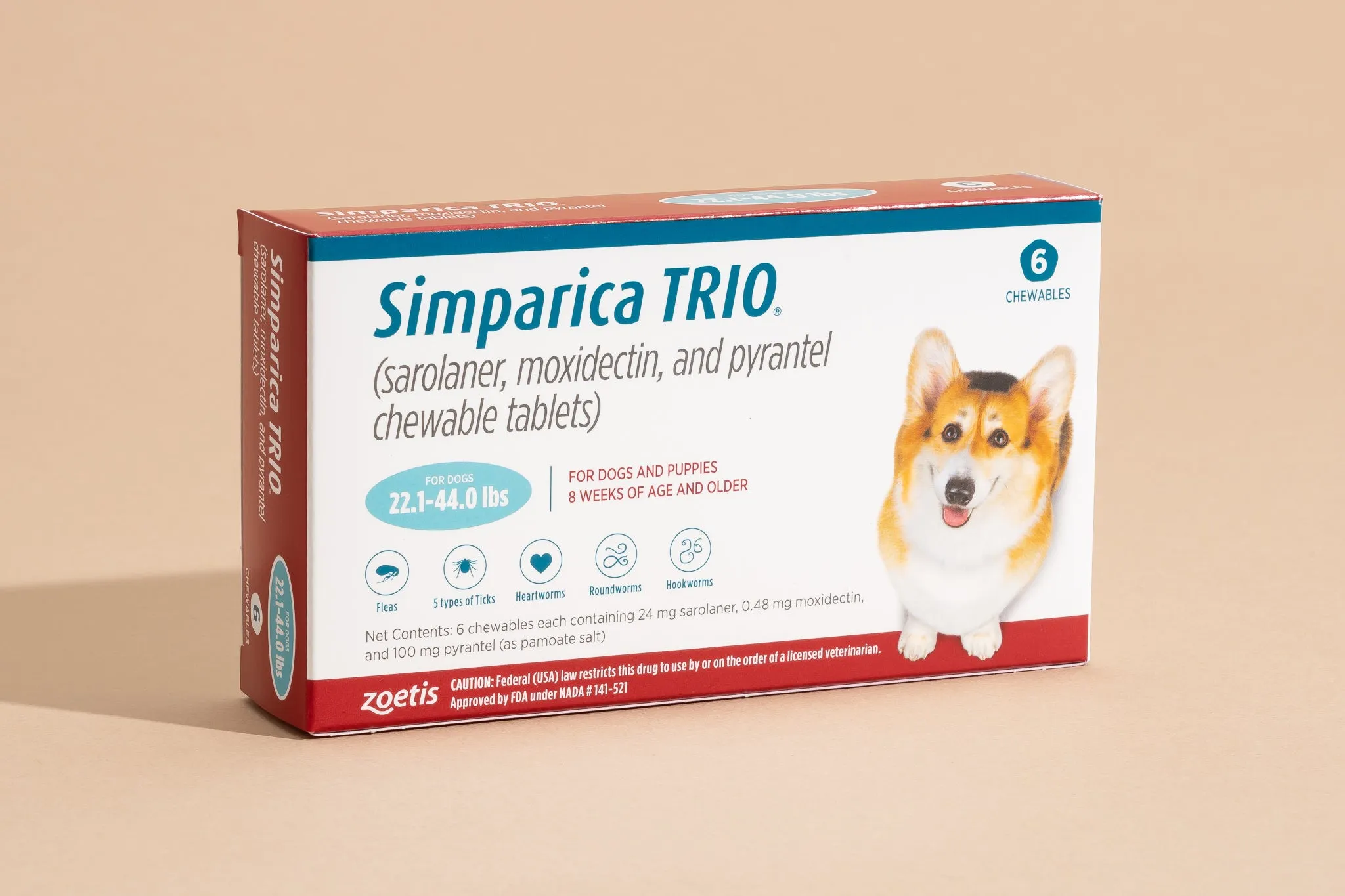 A box of Simparica Trio Chewable Tablet for Dogs.
A box of Simparica Trio Chewable Tablet for Dogs.
Simparica Trio uses three active ingredients to combat a wide range of parasites. Sarolaner, an isoxazoline compound, kills fleas and ticks. Moxidectin protects against heartworm, and pyrantel targets adult and immature stages of hookworms and roundworms, according to veterinary parasitologist Chris Adolph from Zoetis. This medication is suitable for puppies eight weeks and older weighing at least 2.8 pounds. Simparica Trio provides effective and convenient protection against multiple threats.
Kills or repels:
- Fleas
- Black-legged tick (deer tick)
- Brown dog tick
- American dog tick
- Lone star tick
- Gulf Coast tick
- Heartworm
- Hookworm
- Roundworm
Price per year: about $350 to $405 (depending on dosage)
Long-Lasting Flea and Tick Control: Bravecto Chew
If you prefer less frequent administration, Bravecto Chew for Dogs offers a 12-week protection period against fleas and certain ticks. This chewable tablet simplifies parasite control, but it does not treat or prevent worm infections, requiring an additional product for internal parasite protection.
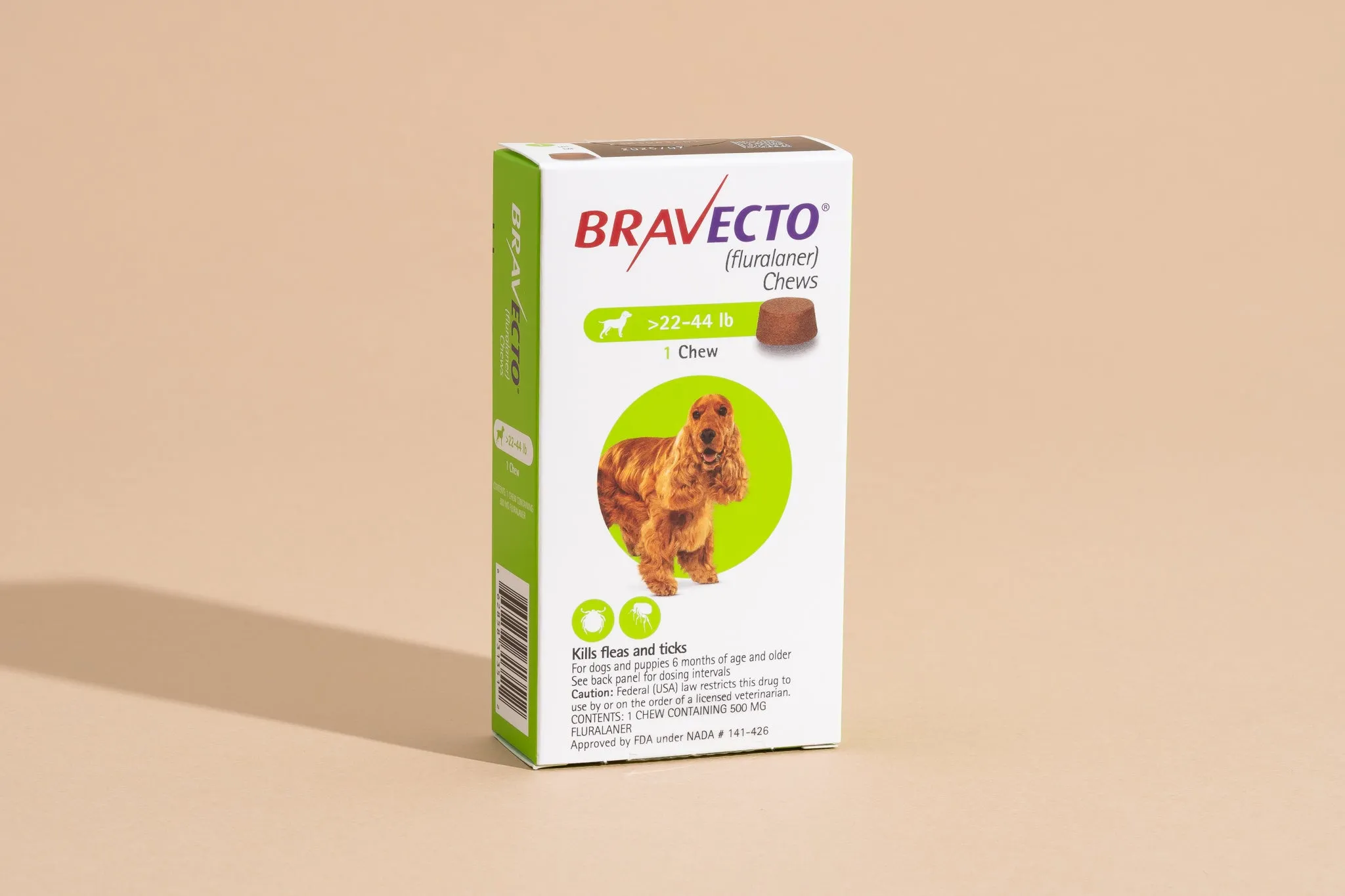 A box of Bravecto Chew for Dogs.
A box of Bravecto Chew for Dogs.
Bravecto’s active ingredient, fluralaner, is another isoxazoline that effectively eliminates fleas and controls ticks, including the Asian longhorned tick. For areas with high lone star tick populations, administering Bravecto every eight weeks is recommended for full coverage, as indicated on the product label. This medication is available in various dosages for dogs weighing between 4.4 and 123 pounds. Always administer Bravecto with food.
Kills or repels:
- Fleas
- Black-legged tick (deer tick)
- Brown dog tick
- American dog tick
- Lone star tick
- Asian longhorned tick
Price per year: about $330 to $350 (for 12-week administration, depending on dosage)
Budget-Friendly Flea and Tick Collar: Seresto
For pet owners seeking an economical option, the Seresto Flea and Tick Collar for Dogs provides eight months of protection against fleas and ticks. This collar kills and repels these external parasites, reducing the need for them to feed on your dog’s blood.
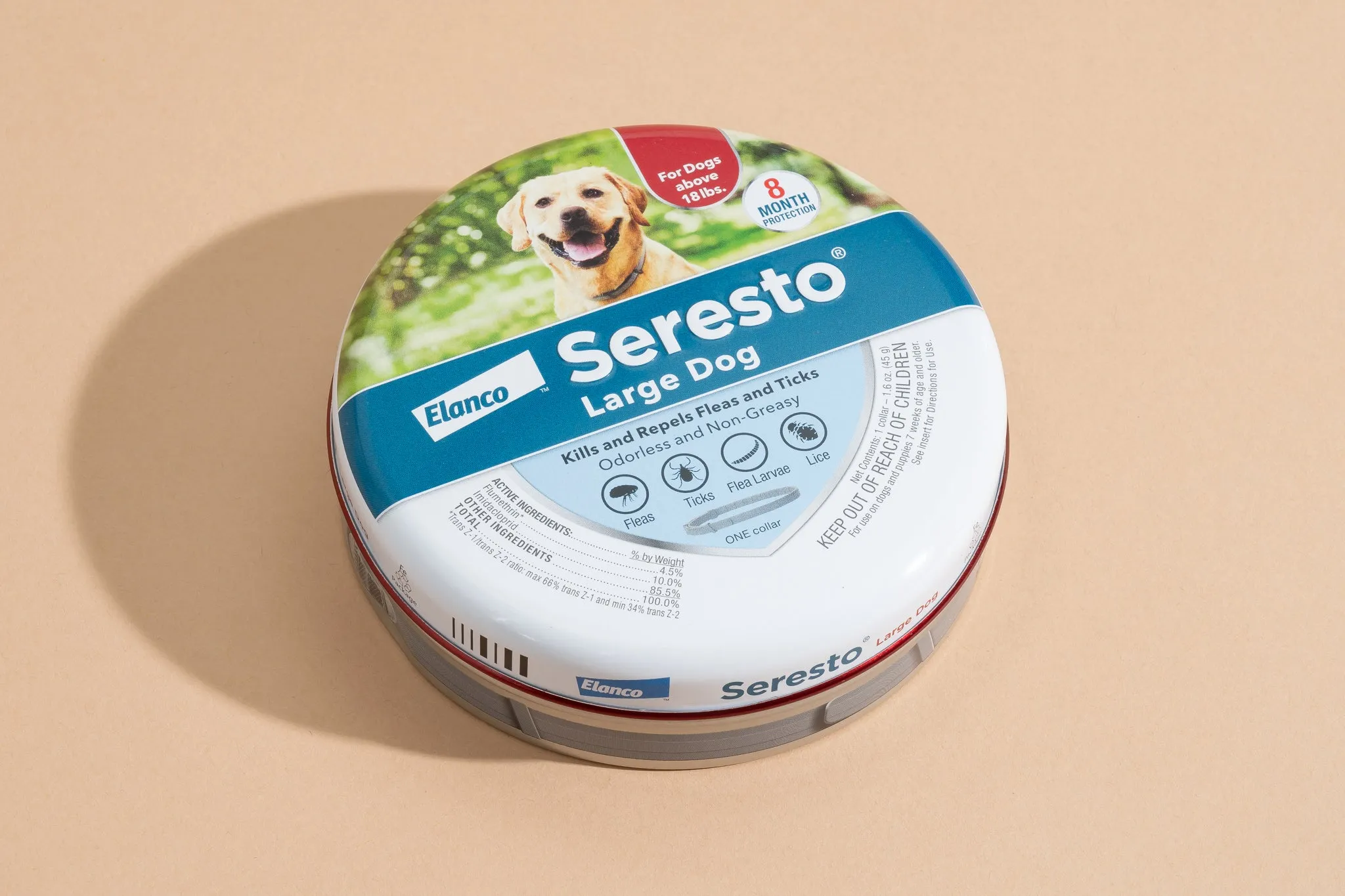 A tin containing a Seresto Flea and Tick Collar for Dogs.
A tin containing a Seresto Flea and Tick Collar for Dogs.
Susan Little, a veterinary parasitologist, suggests using an isoxazoline as a baseline and adding a repellent collar like Seresto in tick-heavy areas or during peak tick season. The Seresto collar addresses external parasites only, so a separate product is necessary for heartworm, hookworm, and roundworm prevention. Available in two sizes, for small dogs (up to 18 pounds) and large dogs (over 18 pounds), the collar should be properly fitted to avoid scratches.
Kills or repels:
- Fleas
- Black-legged tick (deer tick)
- Brown dog tick
- American dog tick
- Lone star tick
- Chewing lice
- Sarcoptic mange
Price per year: $90
Topical Flea and Tick Repellent: K9 Advantix II
Another affordable choice is the K9 Advantix II Flea and Tick Spot Treatment for Dogs, an over-the-counter topical repellent applied monthly. This treatment kills and repels fleas, ticks, lice, biting flies, and mosquitoes, preventing them from biting your dog.
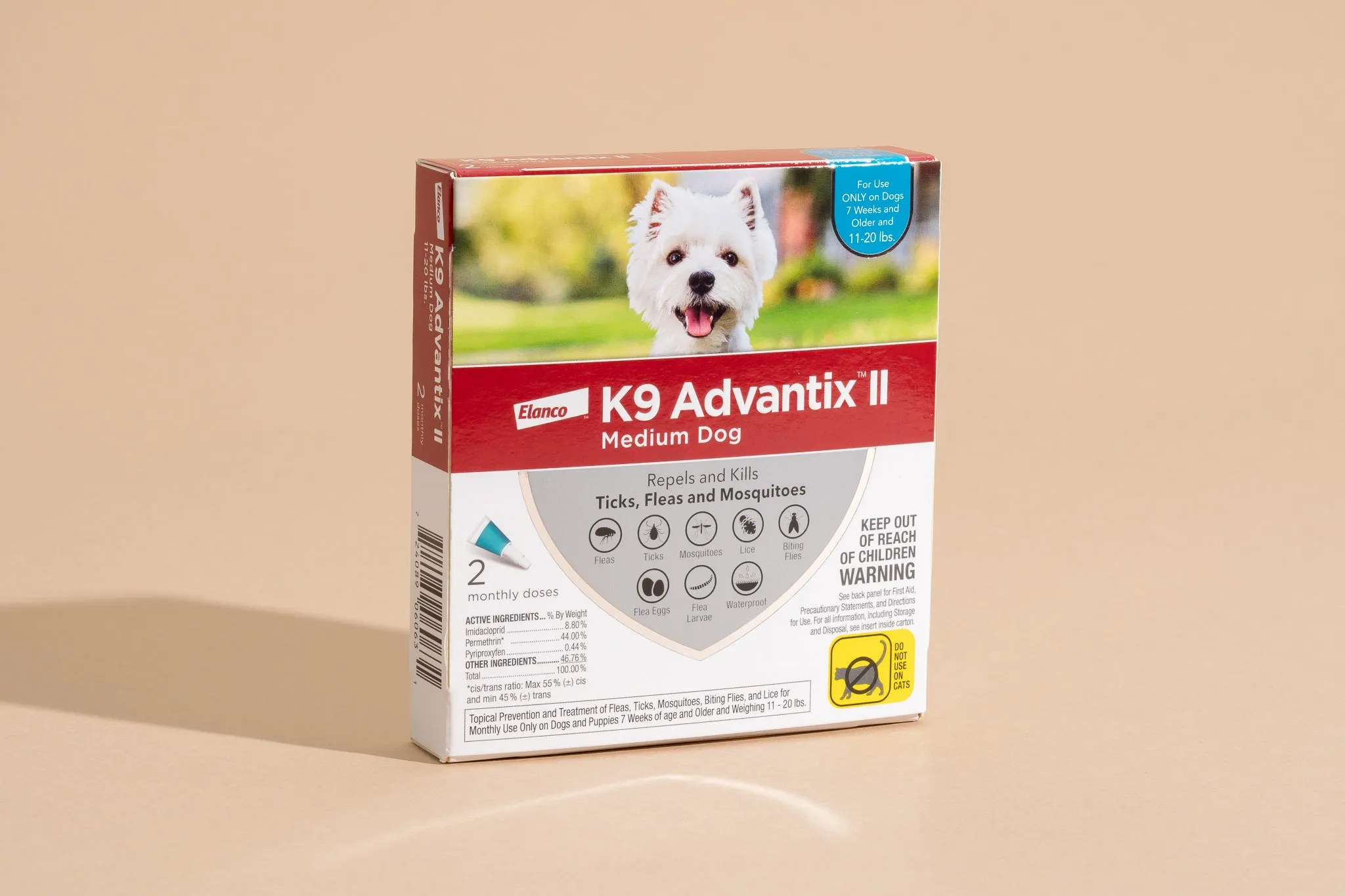 A box of K9 Advantix II Flea and Tick Spot Treatment for Dogs.
A box of K9 Advantix II Flea and Tick Spot Treatment for Dogs.
K9 Advantix II contains imidacloprid and permethrin, which are effective against various pests. However, permethrin is toxic to cats in high concentrations, so caution is necessary if you have feline companions. Keep treated dogs separated from cats for 24 hours after application and contact your vet if a cat ingests the product. The treatment is available in four dosages based on your dog’s weight.
Kills or repels:
- Fleas
- Black-legged tick (deer tick)
- Brown dog tick
- American dog tick
- Lone star tick
- Mosquitoes
- Biting flies
- Lice
Price per year: about $155
Choosing the Right Treatment
When selecting a cheap flea and worm treatment for dogs, consider the following factors:
- Your dog’s specific needs: Does your dog require protection against fleas, ticks, heartworm, and intestinal worms, or just fleas and ticks?
- Your budget: Prices vary significantly between treatments.
- Ease of administration: Chewable tablets, topical treatments, and collars each offer different levels of convenience.
- Potential side effects: Consult your veterinarian to discuss any potential risks associated with specific treatments.
By carefully considering these factors and consulting with your veterinarian, you can choose a cheap flea and worm treatment for dogs that effectively protects your furry friend from parasites without straining your finances.
